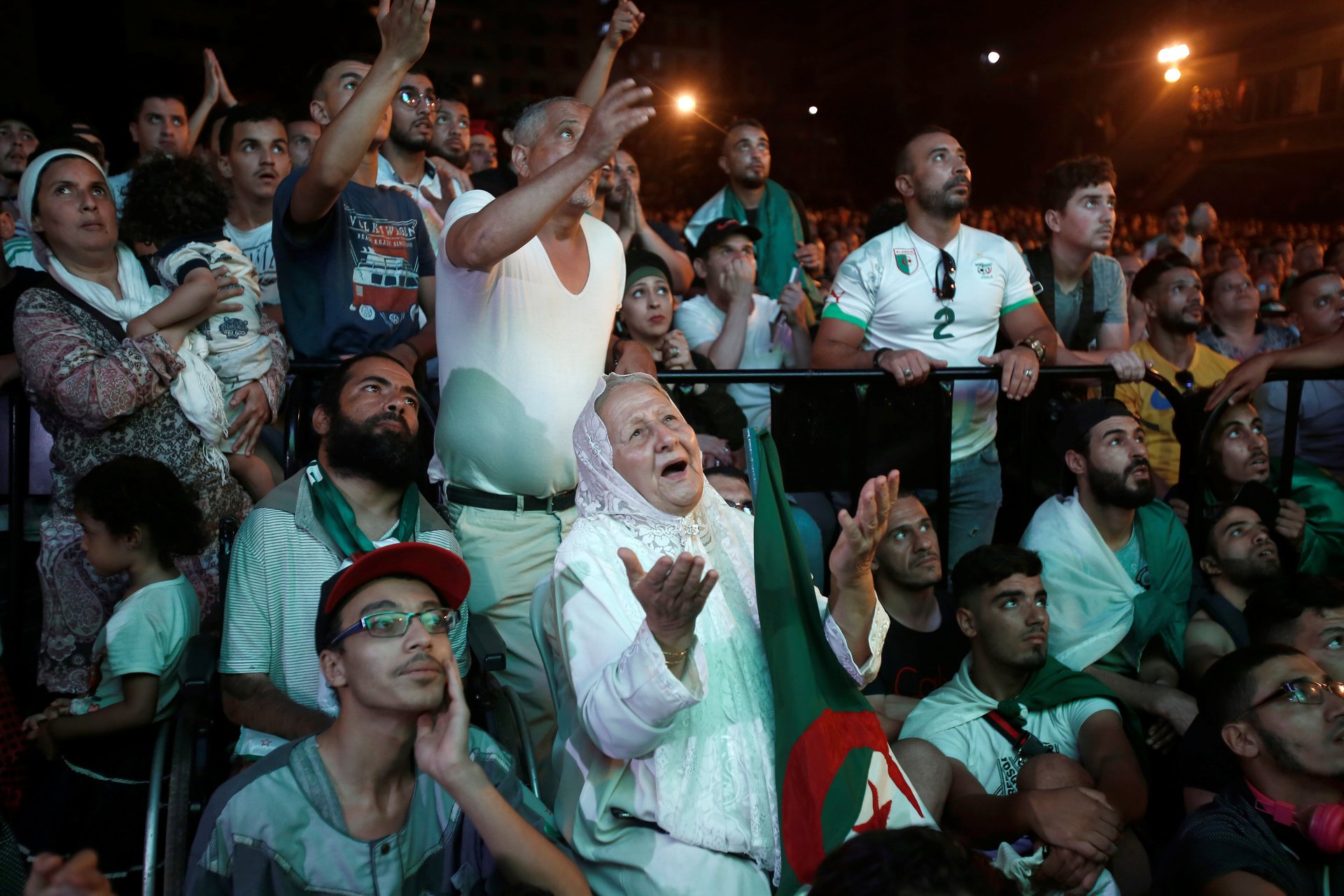Algeria made history at Afcon, but not in the way it hoped
One constant this particular Africa Cup of Nations (Afcon) has been endless surprises. A goal-less draw between Africa’s highest ranked FIFA team (Senegal) and Malawi, ranked 129th or Ghana’s defeat and eventual ouster at the hands of debutant Comoros.


One constant this particular Africa Cup of Nations (Afcon) has been endless surprises. A goal-less draw between Africa’s highest ranked FIFA team (Senegal) and Malawi, ranked 129th or Ghana’s defeat and eventual ouster at the hands of debutant Comoros.
Fresh from their triumph at the Fifa Arab Cup—a precursor to the FIFA World Cup happening later this year—Algeria’s Fennecs (foxes) trotted off to Cameroon hoping to eclipse Italy’s remarkable 37-game unbeaten run and set a new international soccer record on their course to retaining dominance at the summit of African football.
They made a different kind of history instead as the Afcon title holders, finished bottom of a group that had Sierra Leone and Equatorial Guinea, ranked 108 and 114 respectively by football governing body FIFA.
This is the grandest soccer competition on the continent and as with other editions, this has sprung several surprises. However, the possibility of the north Africans leaving Cameroon on Thursday evening (Jan. 20) was unprecedented.
“It’s difficult to make a rational analysis at the moment,” coach Belmadi conceded after the loss to Cote d’Ivoire. “We wanted to make up [for] lost ground in this match, we weren’t able to do that. When we didn’t convert our chances early on, perhaps doubt set in. Even [with] penalties we struggled to score.”
His opposition Patrice Beaumelle reiterated that “they never really had confidence in themselves.”
The last time they tasted defeat was in October 2018 and had gone 34 games without losing a match since then.
Belmadi the healer and recent history of Algeria’s football victories
Of their final 28-player selection to the Afcon finals, 12 of them, including national team mainstays Youcef Belaili, Yacine Brahimi Baghdad Bounedjah and first-choice goalkeeper Raïs M’Bolhi, were in the squad for the FIFA Arab Cup in Qatar. Algeria’s imprint was such that the other fringe players fitted right into an efficient system and went on to win the competition.
Europe-based players like team captain and Manchester City winger Riyad Mahrez, Youcef Atal, and Ramy Bensebaini only needed to plug into a system they’re familiar with for a title defense in Cameroon.
Their recent Fifa Arab cup win is a testament to the wholesome healing eccentric yet meticulous coach Djamel Belmadi had done since taking over the reins on 2 Aug. 2018. Prior to Belmadi’s appointment, Kheireddine Zetchi, the Algerian Football Federation president, admitted the country’s football in its entirety was “sick”.
The metaphor was just as apt.
Rabah Madjer’s ouster as the coach of the national team in 2018 was emblematic of this. He was the sixth coach to handle the Fennecs within two years of utter chaos. He replaced Lucas Alcaraz who was sacked in October 2017 after spending only six months in the job.
The team had suffered a group stage exit at the 2017 Afcon finals and missed out World Cup in Russia, the following year. And these coaches failed to offer redemption to the team. In his fourth stint as Algeria’s coach (with previous spells in 1993, 1999, and 2002), Madjer, a former Algeria international cult hero, left the team more broken than he met it.
All of these happened amid corruption and match-fixing scandals ravaging the country’s football on the local level, as exposed by the BBC in a three-year investigation.
In Belmadi, Zetchi and Algerian football struck a bargain. Young, astute, hungry, and also a former national team hero with relatively little managerial experience. He turned the fortunes of the team around by forging an identity and a winning mentality for the north African side. The following year at the 2019 African championship held in Egypt, they were hoisting the most-coveted title on the continent, sweeping aside oppositions with skill and grit.
They grew massive and posed unsolvable puzzles to oppositions, amassing a 34-game unbeaten run heading into the tournament and an Arab Cup win.
On Thursday (Jan. 20), however, they were a shadow of themselves as Cote d’Ivoire swept them aside in a resounding 3-1 defeat at the Japoma stadium, Douala to leave them lurking at the bottom of Group E, with only a point and a goal.
Uncharacteristic of them, their ever-blazing offense filled with an array of skillful forwards was tamed and a well-organized defense was out of sorts.
The group opener against Sierra Leone had set a template for the disaster. That confidence they once oozed was thoroughly shaken by Sierra Leone’s eccentric goalkeeper Mohamed Kamara’s heart-in-the-mouth heroics. They hoped they’d recover and then came Equatorial Guinea; winning by the odd goal, but well-deserved.
What’s next at Afcon?
This is unlikely to be the last surprising upset at Afcon. It’s the round of 16 phase and the competition has only switched gears.
Comoros, in its first-ever Afcon appearance, has gone on to get through the knockout phase and would be plotting an upset against host Cameroon. Cape Verde and Malawi will hope for similar famous victories when they face tournament favorites Senegal and Morocco respectively.
Group D winners Nigeria are in for a showdown with Tunisia as they aim to continue on their 100% percent record. Egypt would hope Mohamed Salah replicates his Liverpool form when they battle Cote d’Ivoire for supremacy.
It’s still too early to tell, but perhaps this Afcon’s finalists will rattle FIFA rankings and give hope to countries and regions that have not performed well in the past.
Sign up to the Quartz Africa Weekly Brief here for news and analysis on African business, tech, and innovation in your inbox.